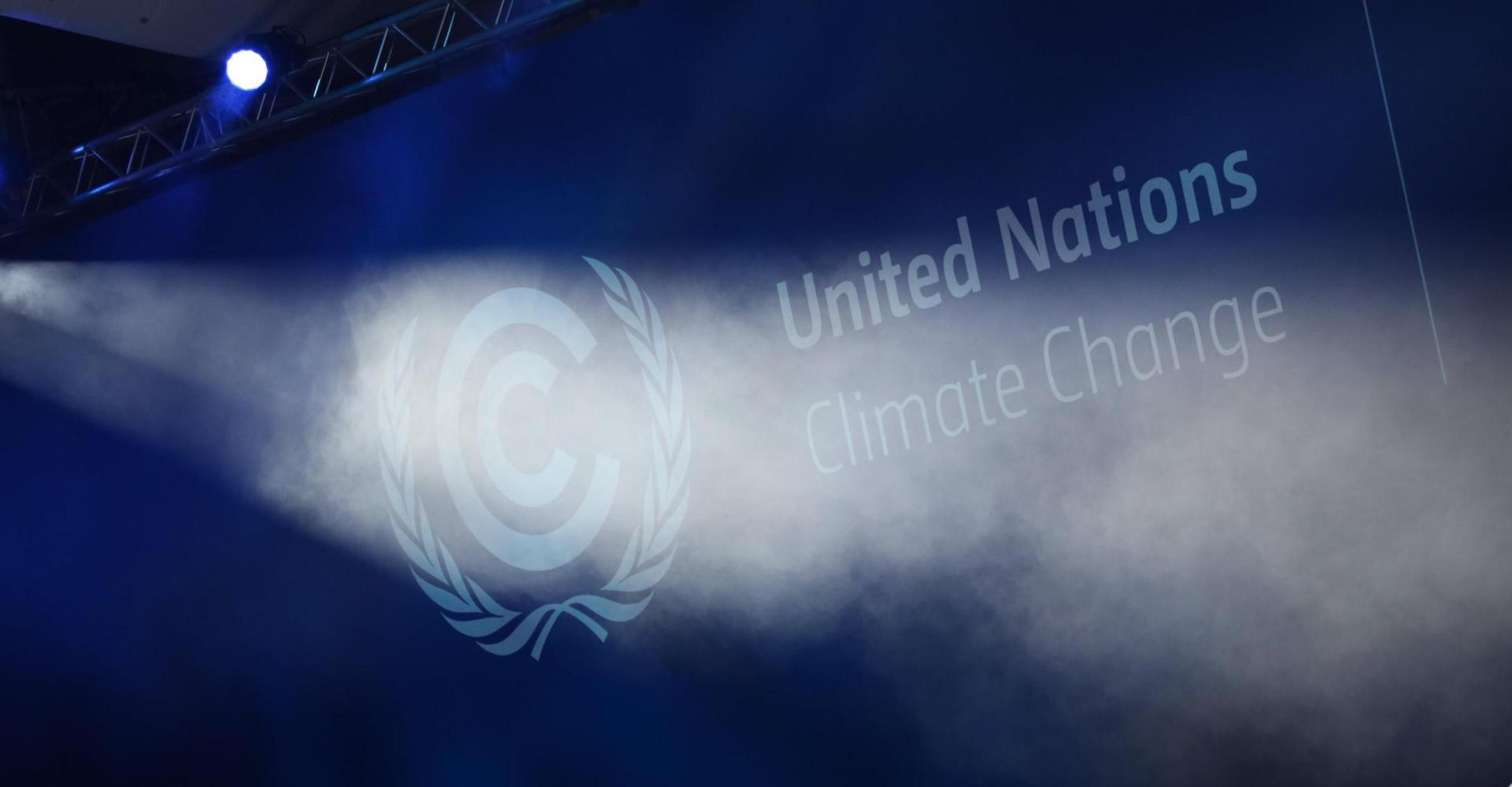Southern's climate leaders joined COP26 in Glasgow, Scotland as representatives of CSCU in 2021.
This event took place in 2021.
For nearly three decades, the United Nations has been bringing together almost every country on Earth for global climate summits – called COPs, or “Conference of the Parties.” In that time, climate change has gone from being a fringe issue to a global priority. The 26th annual summit, thus its name, COP26, took place in 2021. With the United Kingdom as President, COP26 took place in Glasgow, Scotland. In the run-up to COP26, the UK has been working with every nation to reach an agreement on how to tackle climate change. World leaders will arrive in Scotland, alongside tens of thousands of negotiators, government representatives, businesses, and citizens for twelve days of talks.
Southern Connecticut State University applied to be a COP member with observer status a year and a half ago and learned in early fall that it was granted that status and would have a formal acceptance at this year’s event. Two to three thousand organizations across industries have been applying from all over the world. SCSU has obtained access as a RINGO (Research and Independent Non-Government Organization), along with about 300 other universities from around the world. SCSU will be the representative for the CSCU System. Yale and UConn will also attend.
Southern is sending a group of climate leaders to participate in this year’s COP26 because we are at a pivotal moment in time where climate issues are creating massive social and ecological impacts around the world. Globally, there is mounting pressure for governments to act on climate change, and these negotiations are key to framing the agreements and commitments that are made.
Each of the three delegates who will be participating in COP26 in person -- Miriah Kelly, assistant professor, Environment, Geography, and Marine Sciences; Stephen Axon, assistant professor, Environment, Geography, and Marine Sciences; and Suzanne Huminski, sustainability coordinator -- is approaching the event with their own individual goals -- whether that is to conduct research, educate themselves, create new collaborations, identify resources for students, advocate for action, etc. -- but they are also going with the collective goal of serving as the voice of the institution in this global discussion. As the delegation for their constituency, they are dedicated to ensuring that the collective interests of our campus community, and the communities we participate in beyond our institution, are represented and heard.
Participating in these global negotiations is key to providing leadership opportunities for our students, and for connecting our communities here in Connecticut to the bigger global context of climate change.
After COP26, a new program titled “Owls 4 Earth: Observers and Participants of the United Nations Framework Convention on Climate Change” will engage CSCU students, faculty, and staff in the UNFCCC process, and will use SCSU’s official Observer organization status as foundation for climate change research, education, and outreach in our state and beyond.

